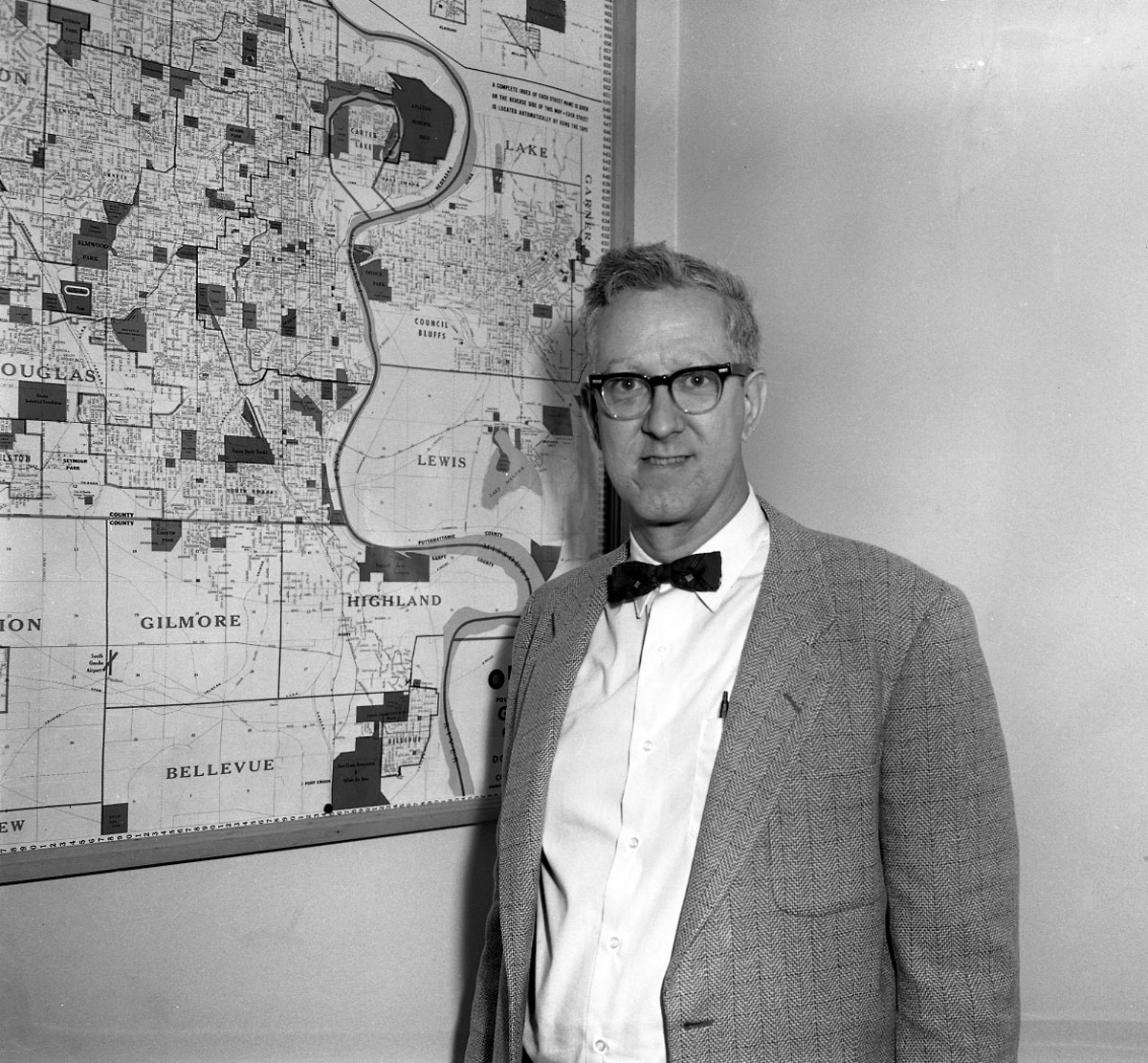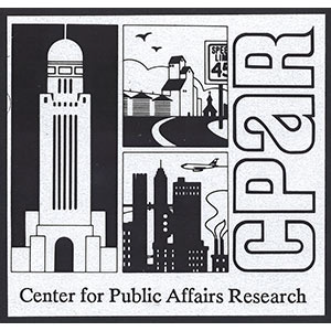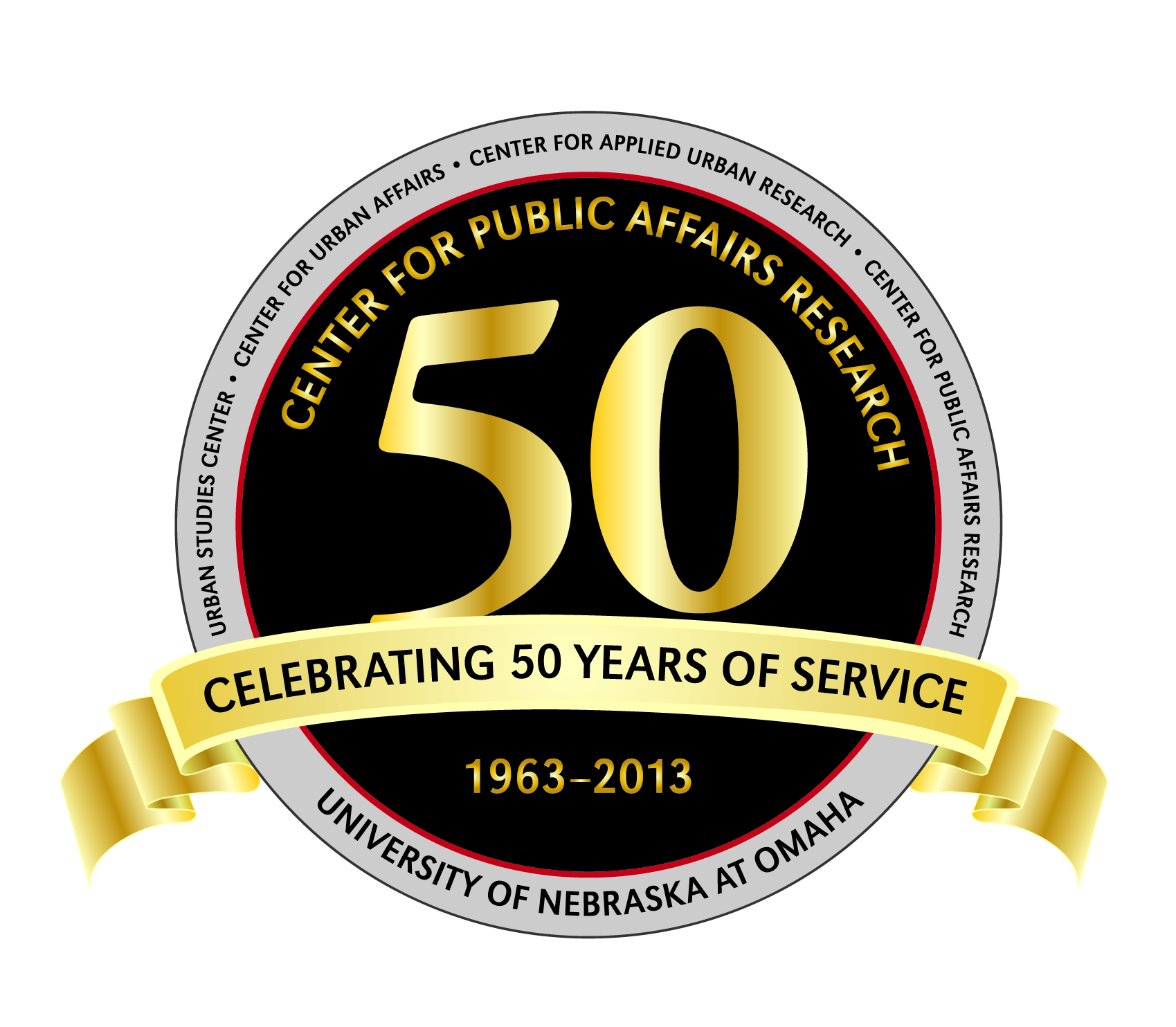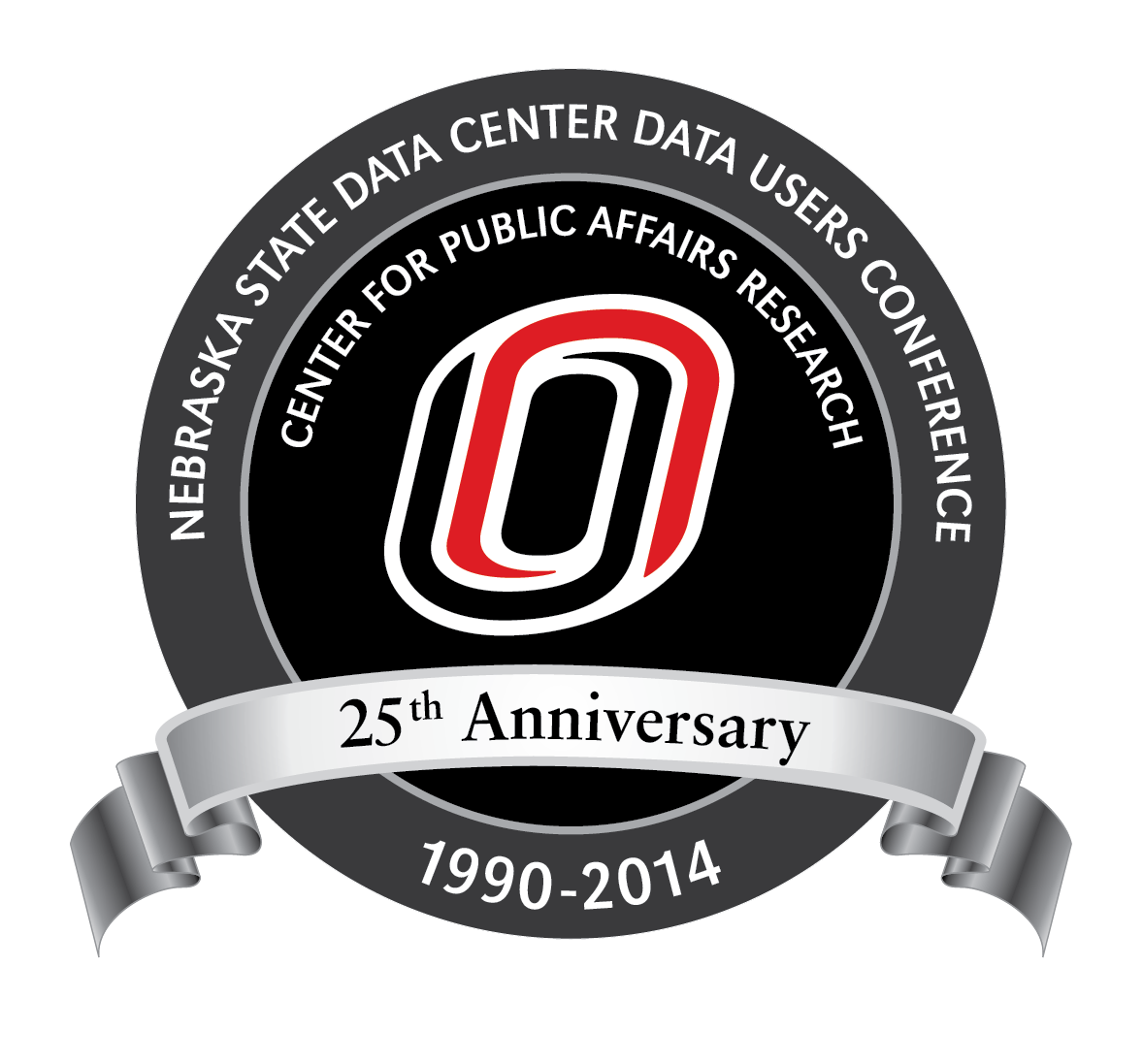Serving the community for over 60 years.
Created in 1963 to address urban problems and information needs, the Center for Public Affairs Research celebrated 60 Years of Service to the University, the Omaha area and throughout Nebraska in 2023.
1960s
Created in 1963 as the Urban Studies Center (USC) to address urban problems and information needs, CPAR has evolved in its mission, focus, activities and even name. The first research project, Perceptions of Poverty Families about the Incidence, Effect and Redress of Poverty in Omaha, was conducted in 1965 by the first director, Harry Reynolds (Political Science), with the assistance of 60 sociology students. Other major research and data-accumulation efforts focused on local economic development and commerce sponsored by groups such as the Omaha Chamber of Commerce. In 1968 USC was reorganized and renamed the Center for Urban Affairs (CUA).

1970s
The 1970s brought an expansion of mission and scope of activities. In 1970 a special Regents’ Commission recommended establishing UNO as the urban university within the new three-campus system and identified CUA as the research and community-involvement arm. As a result, the fourth director, Ralph Todd recruited and hired a multi-disciplinary team of specialists in urban and black cultural problems, housing and health economics, urban finance, quantitative methods, urban geography and demography, computer graphics and public administration. In 1971 the Center was renamed the Center for Applied Urban Research (CAUR). CAUR became a part of CPACS when it was established in 1972.
1980s
During the 1980s under the direction of Vince Webb (Criminal Justice) and later Russell Smith (Public Administration) the Center relocated to the new, downtown state office building just as the adjacent Central Park Mall was being completed. This physical move was indicative of a sharpened urban-research focus that included the first downtown housing study, low-income neighborhood and housing conditions inventories, community-development assistance, urban education and foster-care initiatives and economic development mapping in transitional areas adjacent to the Omaha central business district.
The 1980s signaled a greater effort to serve both urban and rural communities throughout Nebraska. Advances in research and technical assistance were made by assisting local governments with the adoption of computer technology and in accessing and using U.S. Census data more effectively. In 1986 the Center published the first in a series of four annual Nebraska Policy Choices. 1989 was a banner year for the Center: registering another name change to the current Center for Public Affairs Research; being designated by the Governor as the lead agency for the Nebraska State Data Center; and initiating the statewide S.T.A.R.T. Economic Development program.

1990s
CPAR continued to expand its statewide mission in the 1990s, adding S.T.A.R.T. Health Services to its strategic planning services. Another prominent project was a series of six well-regarded Omaha Conditions Survey reports that was initiated in 1990 and ran through 2004. The first annual Nebraska Data Users Conference was held in 1990. In 1998 CPAR began its return to the UNO campus from its downtown location. Jerry Deichert was named director in 1999.
2000s
The 2000s was a decade of movement and change for CPAR. For a few years it maintained offices downtown, at the Collaborating Center for Public Health and Community Service, and at Annex 26. Before finally moving to its current location in CPACS 108, CPAR spent time in the unremodeled Engineering Building and Eppley Administration Building.
In the fall of 2000 CPAR took over the administration of the Certificate in Fundraising Management from the defunct College of Continuing Studies.
In the 2000s CPAR solidified its role as the state’s primary source of demographic information and analysis and expanded its work in the evaluation arena. Through its efforts CPAR helped establish the need for a Middle School Learning Center Initiative in Omaha and conducted the initial outcomes evaluation. Since 2009 CPAR has been working with the Nebraska Legislature to develop a planning database and a series of policy briefs.
2010s
On November 8, 2013, CPAR hosted a Golden Anniversary Celebration.
On August 19, 2014, CPAR and the Nebraska State Data Center hosted the 25th Anniversary of the Annual Data Users Conference.
In 2014, CPAR became a partner in a three-year project with the, then, Nebraska Department of Roads, the University of Nebraska - Lincoln and the University of Nebraska at Kearney to promote and support safe, affordable, and efficient public transit in Nebraska. In 2017, the project was extended for an additional five-years in a partnership with the Nebraska Department of Transportation and the UNK Nebraska Safety Center, with a $2.5M award.
In 2018, long time director, Jerry Deichert, retired, and Josie Schafer was named director.

